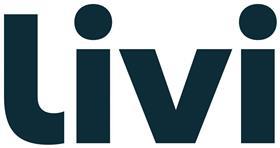For the second time, the planned transfer of CCG-commissioned extended access services to PCNs has been postponed by a further six months, until October 2022.
![]()
This is paid-for content from our commercial partners. Find out more
NHS England has said commissioners should ensure they make the necessary arrangements to extend existing services until the new deadline. This allows more time for PCNs to ‘explore how best to unlock synergies with in-hours services at practice level, as well as consider the option of collaborative working at larger scale than individual PCN footprints,’ NHSE explained.
Sponsored by
Though for PCNs that can ‘demonstrate readiness’, the transition of services can be initiated earlier than the deadline. Despite these transitions being out of sync with the October roll-out, the early transition to these ‘ready’ PCNs could provide valuable insight to the rest of the industry in how to make the conversion as seamless as possible.
The key challenges that lie ahead for commissioners and PCNs
CCGs must now continue the management of extended access for a further six months, and PCNs that had begun planning for the April transition must now wait until October to take the reins.
The delay will present operational, administrative and planning implications that must be adapted to from both levels within the NHS. It does afford a form of reprieve during a time of mass vaccinations at the practice level, as continuity and consistency remain with the services they are familiar with.
However, the delay also pushes back potentially supportive innovations, service additions and upgrades, which are very much required at this local level. It is therefore crucial that commissioners consider the impact of rolling on existing contracts on a monthly basis, in place of initiating new (albeit short-term) contracting models. This can ensure the delivery of these innovations which can increase efficiency and lower the administrative burden on practices.
Immediate action and long-term solutions
In the short term, commissioners can approach suppliers for contracts to cover the gap created by the delay in transition. This can include – but is not mutually exclusive to – lighter versions of new models that can be implemented with minimum impact, whilst delivering some of the benefits of longer-term, more substantial alternatives.
Short-term or non-procured contracts can allow quick and immediate support, as well as the chance to use local budgets creatively to meet immediate demand.
Using digital healthcare is an effective solution for providers to extend healthcare access to their populations. While digital healthcare can strengthen in-hours access plus offer access out of hours, it can also provide a more efficient way to deliver care compared to alternatives such as locum GPs for out of hours appointments, which can cost up to 40% more.
Additional capacity is added with no additional physical space required, and as is the case with Livi, the administrative element is carried out by the digital healthcare provider. Over-the-phone appointment booking queues are also removed, easing daily strains on GP practices.
Digital services can be onboarded quickly in the meantime, to ensure CCGs smoothly manage the next 6 months of extended access whilst also helping them manage the transition to their PCNs in October.
In our experience, this method of offering extended access to healthcare whilst remaining cognisant of the changes that lie ahead in 2022 has provided a viable and successful solution to manage the transition in a manner that benefits CCGs, PCNs and most importantly their patients. Livi’s patient-first approach ensures those seeking care receive outstanding experiences – as confirmed by the CQC – whilst delivering efficiencies and administrative relief to practices and their overarching organisations.
Livi has a proven track record of extending access in a manner that delivers faster access to high-quality care, whilst also reducing healthcare inequalities. Patient needs are often addressed on the first call, without generating inappropriate demand or pressure elsewhere in the system. Dr Sanjay Pawar, GP Lead of Greenview Surgery had this to say about partnering with Livi:
“One of the primary aims of the GP Extended Access Scheme was to improve the accessibility of healthcare for patients. This has been particularly important during the COVID-19 pandemic. Working with Livi has been invaluable for bettering access, as it has allowed patients to seek healthcare in an easy, straightforward and effective way. The quality of the service and the healthcare provided has been exemplary, further serving to support the pressures on the workloads of GP practices. Livi have always been responsive, proactive and are driven to provide an effective service. They have been revolutionary and innovative in helping general practices and have created a foundational pathway for healthcare provision for both the public and clinicians.”
Livi offers appointments from 7am to 10pm during weekdays, and 8am to 4pm at weekends, supporting a variety of services including Urgent Care, extended access and routine general practice. We also support resilience work, winter pressures and help reduce the administrative burden on the practices that we partner with.
If you would like more information, or a free consulation, on how Livi can deliver additional, efficient capacity via digital appointments, please email partnerships-uk@livi.co.uk

























